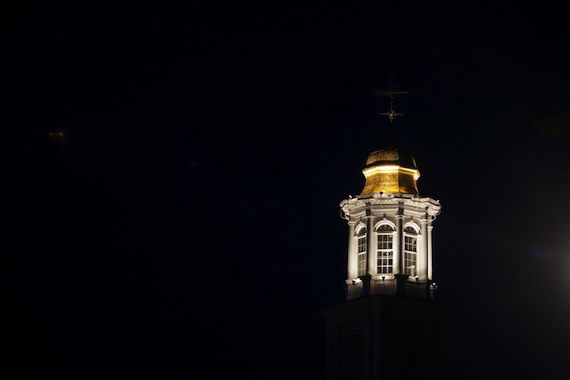
When Douglas Hicks delivered the convocation address to the Class of 2016, his theme was tradition — an interesting choice, one might say, for a provost and dean of the faculty who is almost as new to łÉČËÍ·Ěő as the first-year students. But Hicks, who arrived in July from the University of Richmond, took a broad view of tradition.
“You have noticed already that łÉČËÍ·Ěő is a place that values its history, its traditions,” he said. “Symbols shape łÉČËÍ·Ěő’s identity, including the color maroon and the lucky — indeed, providential — number 13. You learned on Thursday night that the symbol for your class—the cupola of this Chapel—is a source of light that can be seen for miles across the Chenango Valley. Konosioni’s fiery torches leading the procession created a powerful image: Guided by wise senior students, you have arrived to learn. Knowledge itself is portrayed as a source that can illuminate the path toward a well-lived life; and in less than four years, you will go out into the wider world as enlightened graduates.”
But, quoting the philosopher Alisdair MacIntyre, he said “tradition is an ongoing argument, extended over time, precisely about the goods that make up that tradition.” And he charged students to contribute their voice to the discussion and debate.
“I am here tonight to declare to you that: whether you are white or black, Asian American or Native American, rich or poor, gay, straight, or none of the above; whether you are Jewish, Christian, Muslim, Hindu, spiritual but not religious, a seeker, an agnostic, or none of the above; whether you are male or female or transgendered; whether you are an athlete or an athletic supporter—or someone who has never seen a hockey puck; whether your great great great grandfather attended łÉČËÍ·Ěő or you are the very first person in your family to go to college: You have a place in łÉČËÍ·Ěő’s tradition. You are agents — critical agents — in shaping its future.
“You belong at łÉČËÍ·Ěő, and we need you at łÉČËÍ·Ěő!”
